DUP should 'not be spooked by loyalism over protocol'
- Published
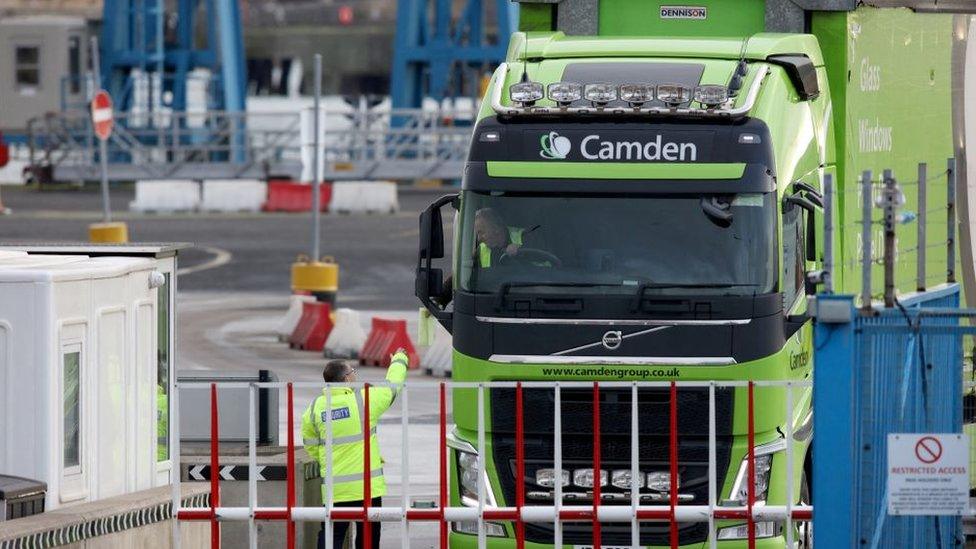
Goods lorries have faced new checks at Northern Ireland ports under the protocol since the UK left the EU
DUP leader Sir Jeffrey Donaldson should not allow himself to be spooked by loyalism if a deal is reached over the Northern Ireland Protocol, the SDLP's Colum Eastwood has said.
He was speaking after a meeting with Irish foreign minister Micheál Martin.
The tánaiste (Irish deputy prime minister) met with the main five Northern Ireland parties in Belfast.
It comes one year on from the collapse of power-sharing government following the DUP's withdrawal.
The party is boycotting the assembly over its opposition to the protocol, the post-Brexit trade arrangement that oversees how goods come in and out of Northern Ireland.
'Punishing the public'
Speaking after meeting Mr Martin, SDLP leader Colum Eastwood said it was clear there was positivity around protocol negotiations.
But the DUP's Sir Jeffrey Donaldson should be prepared to lead, he added.
"If the DUP does get significant movement on its asks, [Sir] Jeffrey should be able to take yes for an answer," he said.
Sir Jeffrey said it was hoped an outcome on UK-EU negotiations would come over the next few weeks.
While progress had been made on technical issues, significant gaps still existed, he added.
"The important thing for me is the quality of the outcome, not the length of time taken," the DUP leader said.
After meeting the parties, Mr Martin said he was confident issues surrounding the protocol could be resolved, but it was a matter for both negotiating teams.
He added the EU was sensitive to concerns that have been raised by unionists about the trade agreement, and anxious to deal with them.
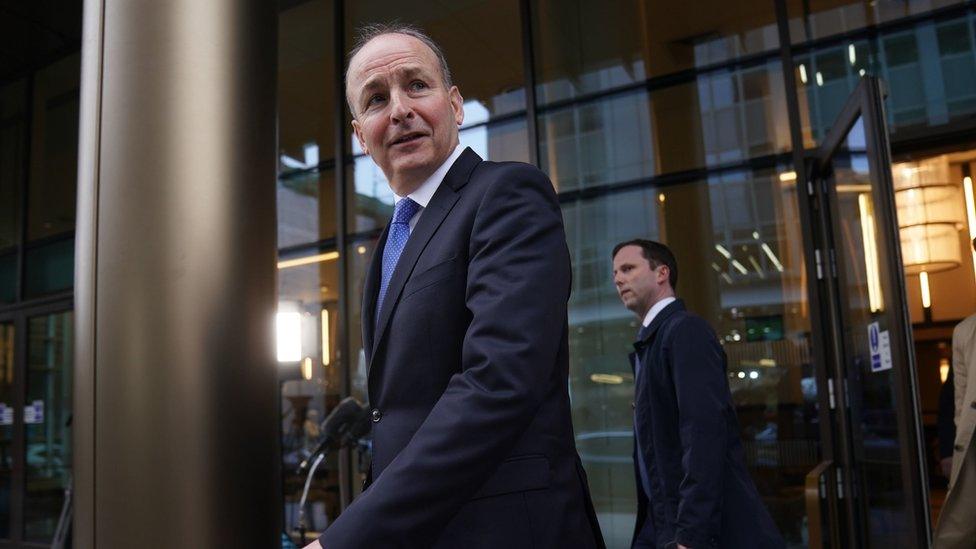
Irish foreign minster Micheál Martin met with the five main political parties in Belfast on Friday
Sinn Féin's vice-president Michelle O'Neill, who also met with Mr Martin on Friday, accused the DUP of "continuing to punish the public" over its boycott of the executive.
Ms O'Neill said she was "very much encouraged" over the protocol talks, and urged both sides to continue in earnest.
Alliance assembly member Paula Bradshaw told the tánaiste there was an urgent need to reform the political intuitions in Northern Ireland following the latest stalemate.
UUP leader Doug Beattie warned against trying to "bounce" unionism over the protocol.
"It's simply not going to work," he said.
Early day motion
Meanwhile, some MPs have fired a warning shot over plans to construct permanent border control posts at Northern Ireland ports.
All eight DUP MPs and six backbench Brexiteer Conservatives have signed an early day motion at Westminster.
It follows a government decision to take control of the construction in the absence of a Stormont executive.
Early day motions are used by MPs to demonstrate the level of parliamentary support for a particular cause, but they are seldom debated in the House of Commons chamber.
Alliance and the SDLP have dismissed the Tory-DUP motion.
The motion challenges the decision to construct the border posts, stating that they "give effect to a customs border that divides the UK, treating Northern Ireland like a foreign country".
It adds that the purpose of the border posts "is to protect the integrity of a different legal regime in Northern Ireland created by laws" imposed in more than 300 areas.
What is the Northern Ireland Protocol?
The protocol keeps Northern Ireland in the EU's single market for goods, avoiding the need for a hard border with the Republic of Ireland after Brexit.
Special trading arrangements were required for Northern Ireland because of its land border with the Republic of Ireland, which is in the EU.
The DUP and other unionist parties object to trade barriers being erected between Northern Ireland and the rest of the UK.


Early day motions are a useful tool when it comes to sending a message to the government
In this case it is a timely reminder to the prime minister that he will face battle on his backbenches if he agrees a deal on the protocol with the EU which falls short of the DUP's demands.
But Rishi Sunak will have already factored that into his calculations and if the changes agreed do not require a vote in Westminster then he will be dealing with noise and not divisions on the benches behind him.
The DUP also does not need reminded that those who are lining up to support them now are the same Brexiteer MPs who voted for the protocol in Boris Johnson's 2019 deal.

Under the new legislation the Northern Ireland secretary will have the power to take the appropriate steps in "constructing facilities for performing official controls" as laid out in EU rules.
He will also have the authority to recruit and employ suitability qualified staff to carry out checks and he can do so regardless of what has been agreed by the Stormont executive.
Green and red lanes
The government said the posts would need to be built even if it could not agree a new deal with the EU and presses ahead with its own plan.
In the unilateral plan laid out last year the government said it would create a "green lane" for goods from Great Britain (GB) which are staying in Northern Ireland.
A "red lane" will be used to check and control GB goods going on to the Republic of Ireland and the wider EU.
The government said the red lane will require the construction of the new posts.
The protocol means that currently all commercial agri-food products entering Northern Ireland from GB have to go through makeshift facilities at Northern Ireland ports.
The role of the European Court of Justice (ECJ) in overseeing the protocol is also a sticking point between the UK and EU.
On Wednesday, EU officials dismissed fresh reports that a deal had been reached between the two sides.
- Published1 February 2023
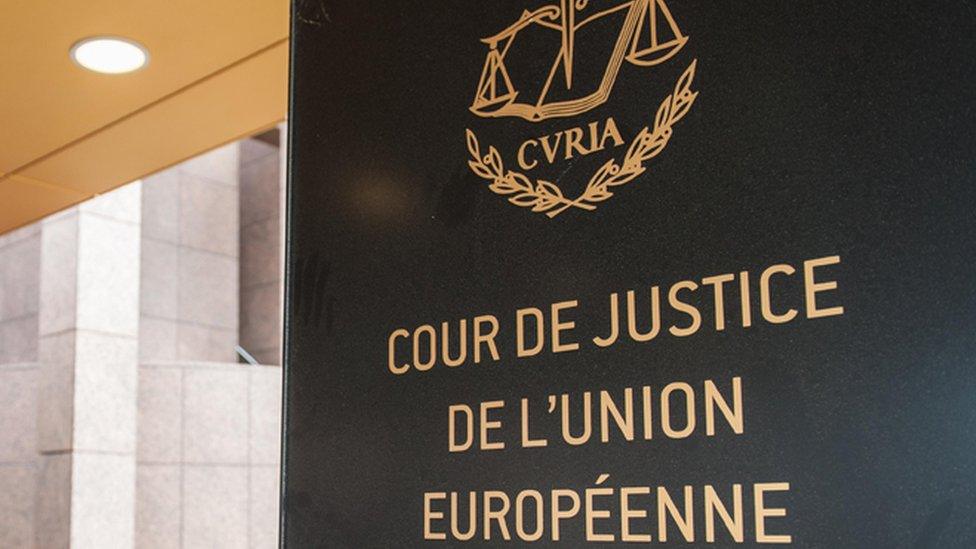
- Published15 January 2023
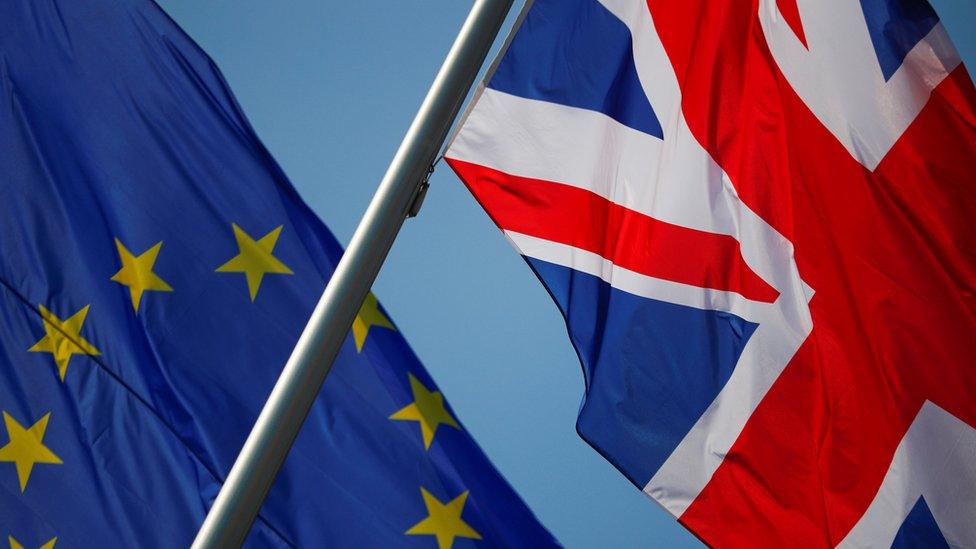
- Published3 February 2023
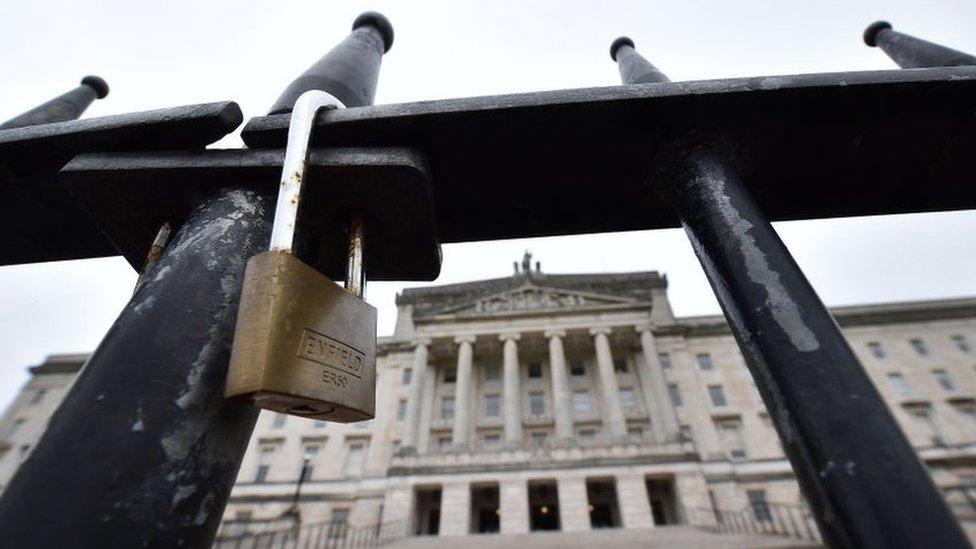
- Published2 February 2024
